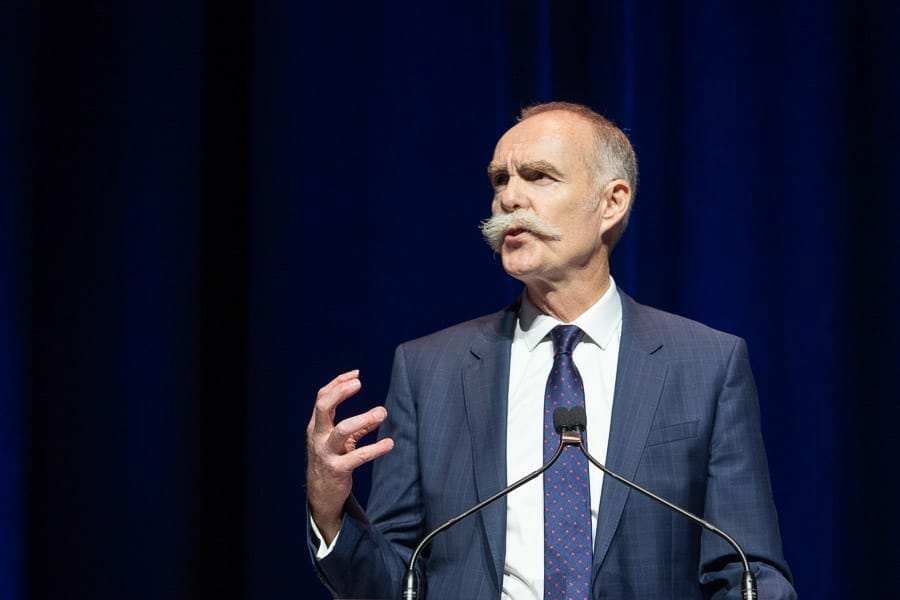AustralianSuper chief executive Ian Silk aims to capitalise on foreign opportunities by having more people on the ground in major markets to identify and execute deals earlier, thus avoiding the prospect of a bidding war for prized assets.
Australia’s largest superannuation fund plans to open offices in New York and Asia and beef up its London operation as part of a strategy to invest in, and directly manage, more offshore assets, Silk said.
The superannuation fund, projected to reach A$300 billion in assets in five years, is forecast to increase its allocation to overseas investments from about half to about 60 per cent by 2024.
AustralianSuper’s overseas ambitions are partly driven by watching rival funds snare key assets through having a greater presence in major markets, according to the superannuation fund boss.
“The best opportunities are often ones that don’t go through a big public process or auction which drive up prices to some very lofty levels,” he argued.
“We want to carry out transactions that don’t occur in the public gaze and don’t have the sort of competitive tension that auctions spark.”
Silk believes building relationships and understanding a vendor’s particular circumstances makes it easier to cut a deal that suits two parties.
Silk also conceded that running foreign transactions out of Australia is not sustainable.
“We are approached on investments because we have a big pool of capital but if we are on the ground in these markets, we think we will be aware of opportunities earlier,” he noted.
Importantly, with A$160 billion in assets under management, the fund now has the scale to make this cost effective.
“The next wave of change is going to be a much greater allocation offshore and a much greater direct investment,” Silk said.
TheAustralianSuper chief called this a “very significant shift” in the way the fund invests.
About 62 per cent of the fund’s assets are managed by external parties and the rest is managed internally.
The fund has received around A$16 billion of new inflows this financial year, which was up about 90 per cent on last year. The bulk of this has come from retail offerings from the country’s big four banks, and financial services provider AMP, who have lost customers due to the revelation of bad practices during the Hayne Royal Commission at the end of 2018.
Silk says he is “staggered” to see that inflows from retail funds is continuing.
“We thought there’d be a short-term blip during the currency of the royal commission when the publicity was at its keenest,” he noted.
“But its continued and we have had certain months this year which have outstripped many months last year so it shows no signs of dropping off.
“Presumably it will at some point but there are but no signs yet.”
Silk said the fund’s goal was not growth for its own sake, and the new money had to drive better performance for members.
Critically, he argued, unless the inflows are actually driving enhanced performance, then AustralianSuper should be shutting the door on new members and new money.
“If the money was coming in and we couldn’t invest it well and continue to deliver good performance we would be acting entirely contrary to what a for member fund is all about.”



